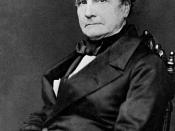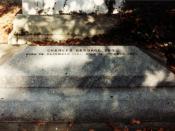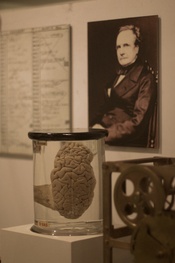This term paper is about the origin of the computers, classifying them by generations, each generation comes given by changes and technological improvements, but before speaking of each generation we should know something of the history that carried to build the first computer. For centuries, men have tried to use forces and appliances of different type to carry out his work, to do it simpler and faster. The history of the appliances that calculate or compute go back many years before Christ. Two principles have coexisted with the humanity in this theme. One it is to use things to count, such as the fingers, stones, seashells, seeds. The other is to place those objects in specific positions. These principles met in the abacus, instrument that is still useful today, to carry out complex arithmetic calculations with enormous rapidity and precision.
In the 17th Century, the rule of calculus was found in to be in use in the west, calculator based on the invention of Napier, Gunter and Bissaker.
John Napier (1550-1617) discovers the relation between geometric and arithmetic series, creating boards that he called logarithms. Edmund Gunter takes charge of marking the logarithms of Napier in lines. Bissaker places the lines of Nappier and Gunter on a piece of wood, creating in this manner the calculus rule. During more than 200 years, the calculus rule is perfected, becoming a pocket calculator, extremely versatile. By the year 1700 the digital numerical calculators, represented by the abacus and the analogous calculators represented by the calculus rule, were of common use in Europe. Blaise Pascal (1623-1662), besides writing philosophical and literary, mathematical and scientific matters, he had time to invent machines. One of them, his calculator capable of carrying out sums and subtractions. Despite their occasional inaccuracy, this early machine of Pascal, came...


